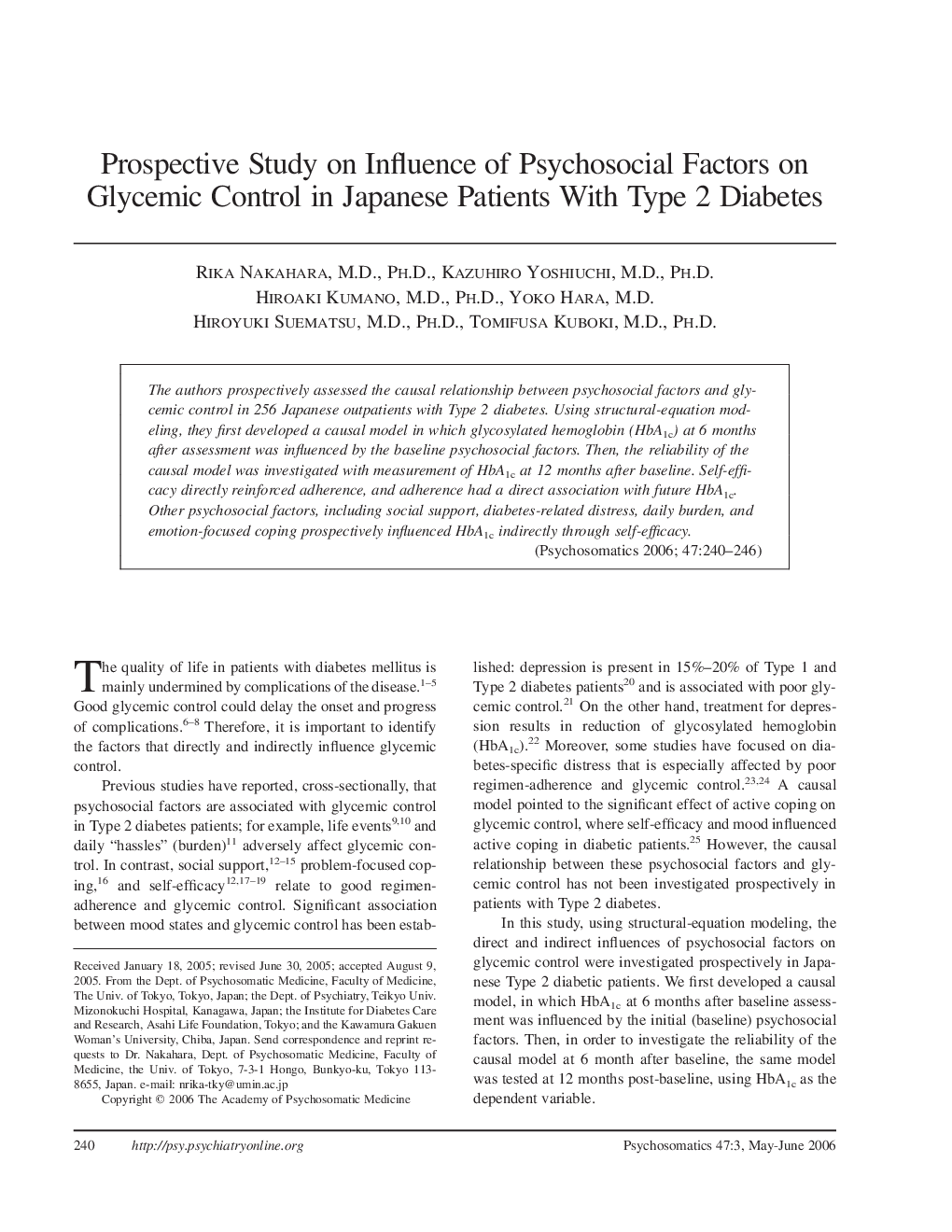| کد مقاله | کد نشریه | سال انتشار | مقاله انگلیسی | نسخه تمام متن |
|---|---|---|---|---|
| 338828 | 547989 | 2006 | 7 صفحه PDF | دانلود رایگان |

The authors prospectively assessed the causal relationship between psychosocial factors and glycemic control in 256 Japanese outpatients with Type 2 diabetes. Using structural-equation modeling, they first developed a causal model in which glycosylated hemoglobin (HbA1c) at 6 months after assessment was influenced by the baseline psychosocial factors. Then, the reliability of the causal model was investigated with measurement of HbA1c at 12 months after baseline. Self-efficacy directly reinforced adherence, and adherence had a direct association with future HbA1c. Other psychosocial factors, including social support, diabetes-related distress, daily burden, and emotion-focused coping prospectively influenced HbA1c indirectly through self-efficacy.
Journal: Psychosomatics - Volume 47, Issue 3, May–June 2006, Pages 240–246